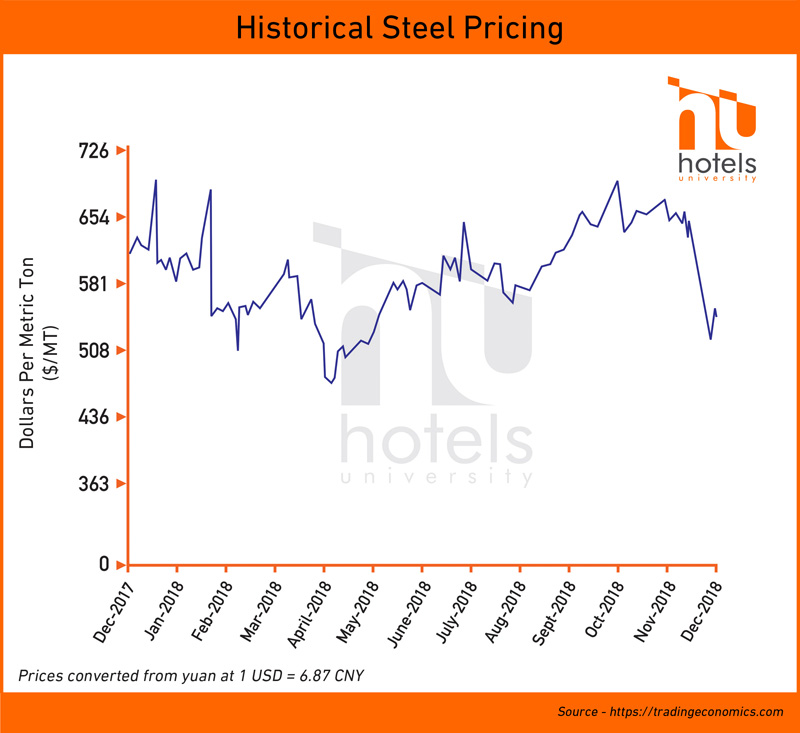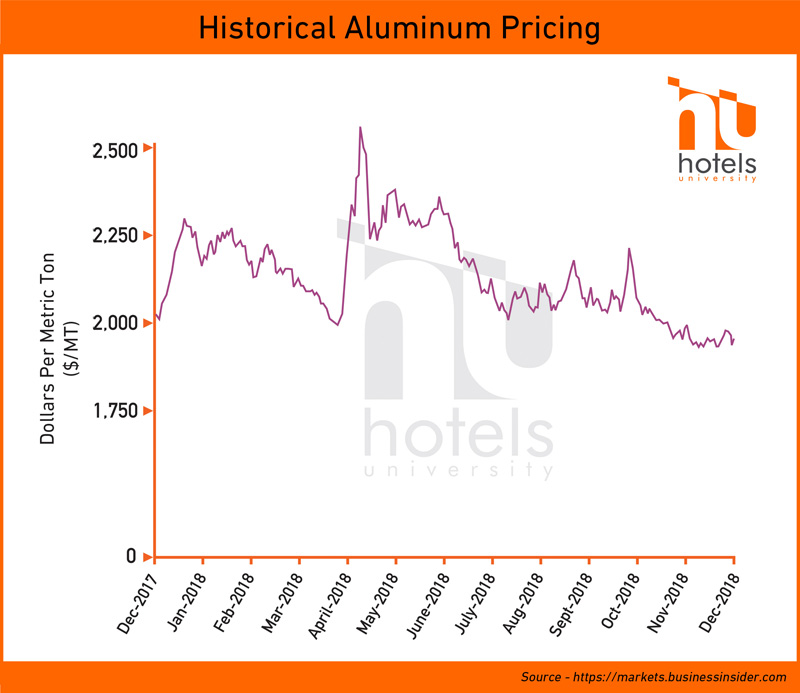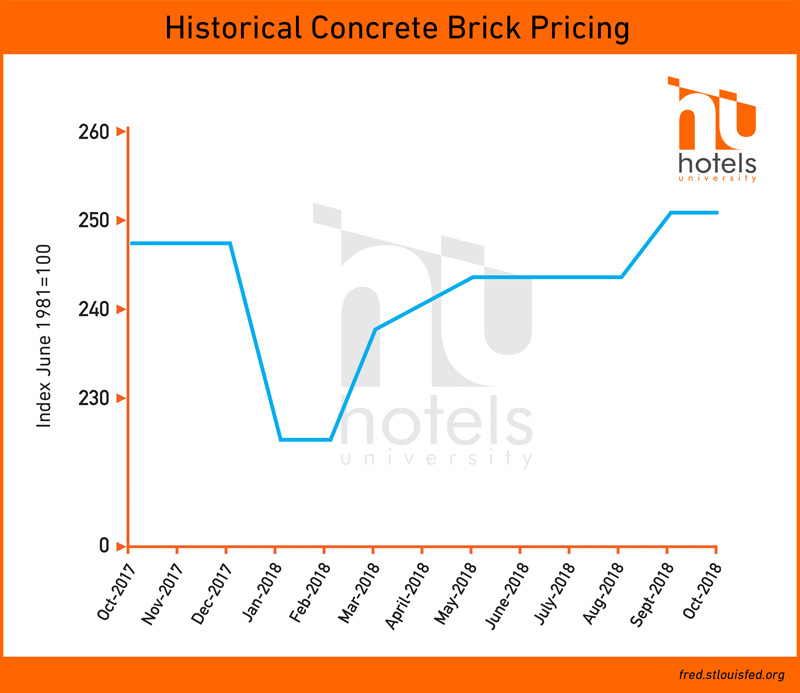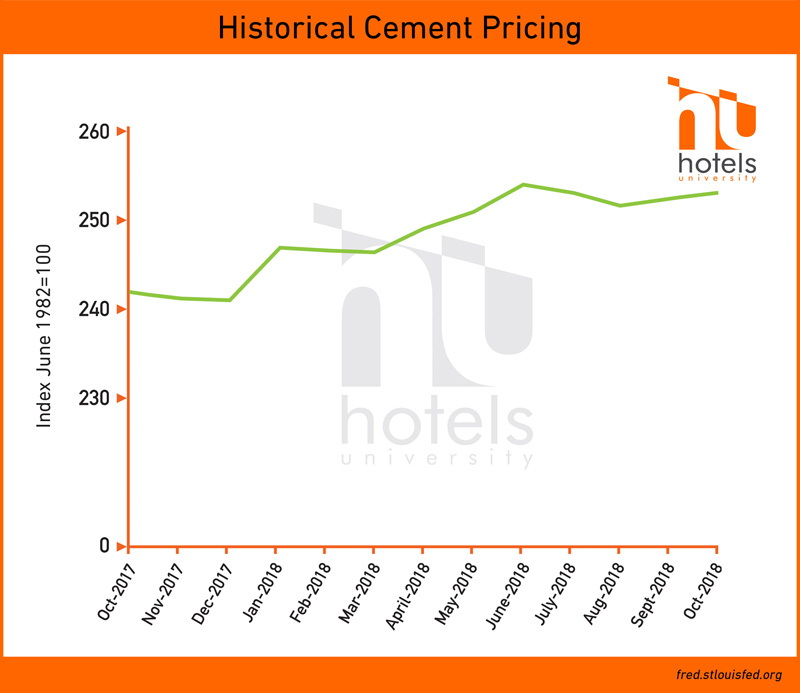How New Tariffs May Impact Your Construction Costs
As I noted in my last newsletter, tariffs on FF&E imports are affecting the hospitality industry. Additional taxes on the imports of raw materials may change the landscape of the construction industry. Below I describe a few potential challenges that may affect hoteliers and builders in the coming years.
Which Tariffs are Making an Impact?
- Softwood lumber (20%): Import taxes on Canadian lumber remain a concern; however, the price line of softwood lumber has lowered recently. The market continues to be unstable.
- Steel (25%) & Aluminum (10%): The tariffs laid on steel and aluminum imports into the country are also a worry. Most countries and regions now fall under levied duties, including Canada, the European Union, and Mexico.
What Does it Mean for Construction?
Multi-story construction will experience changes due to the tariffs, including:
- Volatile Pricing: Sourcing raw materials from within the country may lead to supply issues and higher pricing. Pricing may also vary from one submarket to the next.
As shown in the charts below, steel and aluminum prices were on a historic surge before seeing a recent slight decline. The volatility of the market makes it difficult to predict upcoming trends—further complicating the situation.
- Hard to Find Deals: As construction costs increase, developers must be more selective in the deals they pursue. New developments that made sense this past year may no longer be feasible due to increased capital costs.
- Limited Customization To reduce overhead costs, owners might limit the customization and personalization put into a project—especially for FF&E.
Ideas to Offset the Challenges:
- Value Engineering: Right from the initial stages of concept and design, efficient mechanical, electrical, plumbing (MEP) and structural design segregates high-expense factors and cuts down overall costs without compromising on quality.
- Due Diligence: Hoteliers must show due diligence before committing to a new deal to eliminate any big-ticket items that could add major costs to a project. Issues such as poor soils and environmental impacts could ruin a deal.
- Skilled Talent: Hoteliers will need to hire skilled and experienced engineers, designers, architects, contractors, and subcontractors to work efficiently within the set budget. Hoteliers can also engage the design teams early for site fit tests to ensure a target program works prior to closing on a new property.
- Friendly Documentation: Easy-to-read construction documents help all parties involved navigate the drawings and prepare bids faster. A clean, well-organized set of construction drawings means a better bid.
- Renovate Over Build: As land prices and construction costs continue to rise, adaptive reuse and conversion projects can become more lucrative as compared to new-build.
- Consider Modular: Under certain circumstances and in specific market sectors (see prior newsletter), modular construction may reduce construction costs and improve the predictability of the quality and completion of the project.
Other Materials Not Affected by Tariffs
- With these tariffs in place, you might wonder whether alternative materials such as concrete, plank, and masonry would fare better. However, these options are experiencing similar price volatility as the prices of concrete block, brick, and cement are all increasing.
- The prices of these materials are not a result of tariffs but still contribute toward generally rising construction costs.
- See charts below to understand the price dynamics:
Currently, these dynamic and uncertain price lines require smart and flexible designs. As an architectural and engineering firm, we specialize in providing practical and market-savvy solutions. Get in touch to explore your options!
Thank you,







Recent Comments